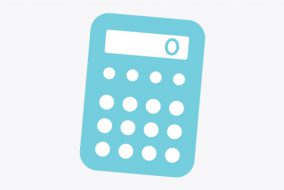As a young adult, the savings and spending habits you develop now are likely to impact your financial well-being for years to come.
Make budgeting a habit, save responsibly, and avoid these common pitfalls:
- Avoid unnecessary debt. Young adults often fall into the trap of taking on too much debt.
- Credit card interest rates are high, so it’s important to pay your balance in full each month. If for any reason, you can’t make the full payment one month, be sure to pay as much as possible – and always at least make the minimum payment. All credit card companies (and other companies that lend money) report to credit reporting agencies regularly.
- Maintain a good credit score so that you can borrow money at reasonable rates for important things down the road – for a mortgage or to launch your own business, for example.
- If you’ve just entered the workforce, it might be tempting to purchase the latest gadgets or the best designer clothing with your newfound income. Give yourself a few days to consider whether or not you need something before making the purchase.
- One of the best ways to manage your spending is to create a budget. Think about your income and how much you are able to pay on a monthly basis. Consider using one of the many budget apps available to help you track your spending.
- When you budget, be sure to set aside a portion of your income towards paying off your student debt and any other loans. Creating manageable goals and timelines will motivate you to pay off your debt quickly and shift the focus to saving for your future.
- Identity theft is a crime that can happen at any stage of your life. Learn how to protect yourself against fraud.
Young adulthood should be full of new experiences and opportunities, but it also means finding a balance between spending, saving and paying off debt. A financial advisor can help you find the right balance.
Establishing good financial habits when you are young will help you stay on track through your life.






















